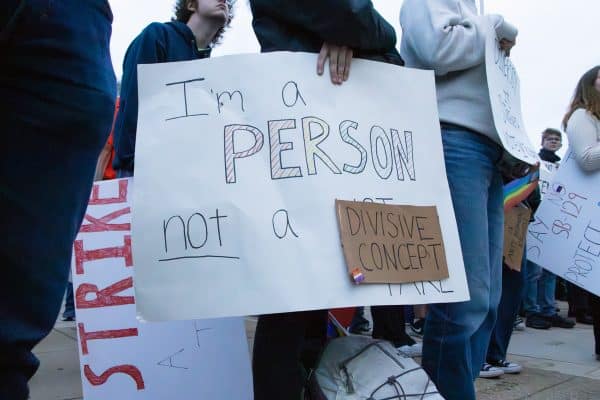Our View: Voting should be universally accessible
November 12, 2018
During the months leading up to the midterm election last week, information on how to get registered to vote and what to bring to your polling place on election day dominated our Twitter feeds and email inboxes. Chances are, whether you heard it from your best friend or from Taylor Swift, someone in your life emphasized the importance of exercising your right to vote on Nov. 6.
Despite nationwide efforts encouraging political participation among groups with historically lower voter turnout, like minorities and young people, not everyone’s voice was heard on election day. One contributing factor may have been inconsistent voting laws.
Since voting laws are created by the states, where you live within the U.S. dictates how easy it is for you to cast your vote. For example, you can vote early in Illinois, but not in Alabama. In Florida, you can cast an absentee ballot without providing justification, but in Alabama, you have to provide the absentee election manager with an excuse that precludes you from voting at your regular polling place on election day. Requiring justification for absentee ballots is one subtle way officials in Alabama, like those in other states with strict voting laws, are able to engage in voter suppression.
This requirement makes requesting an absentee ballot a more tedious process, and it may discourage some would-be voters from applying for a ballot. Another factor to consider is that when you give elections officials the ability to make judgement calls regarding the authenticity of an absentee ballot application, there is always the possibility of racial or political biases, whether subconscious or overt, impacting the outcome.
Given that the applicant is understandably required to provide their address and, depending on the election, their political party affiliation, it’s not hard to imagine that the absentee election manager could have their judgment clouded by their personal feelings about different political and demographic groups.
The reality is if every state in the country wrote voting laws with the intention of giving as many people as possible access to the vote, or if voting laws were national, absentee and early voting would exist in all 50 states, and the debate over whether or not we can trust an elections manager to do their job with integrity would not even exist.
National voting laws would minimize confusion among citizens about when, where and how to vote and would resultantly create a consistent and fair environment for the majority of U.S. citizens. Voting should not be a stressful or complicated endeavor; it should be a process with which average citizens with average levels of political literacy and legal knowledge feel comfortable.
While apathy may have played a role in some UA students not voting, it’s also likely that confusion over how to get registered in Alabama, difficulty casting or receiving an absentee ballot at the University and feelings of confusion and frustration with current voting laws also functioned to inhibit voter turnout in the UA community.
We need national voting laws that simplify the processes of voting and registering to vote, so that more Americans feel empowered to cast their vote in every election. Where you live in he country should not be the deciding factor in whether or not you’ll be allowed to vote early or cast an absentee ballot. All Americans deserve a voting process that is straightforward and uncomplicated, and as long as we have state voting laws with varying levels of restrictiveness, this cannot be achieved.











